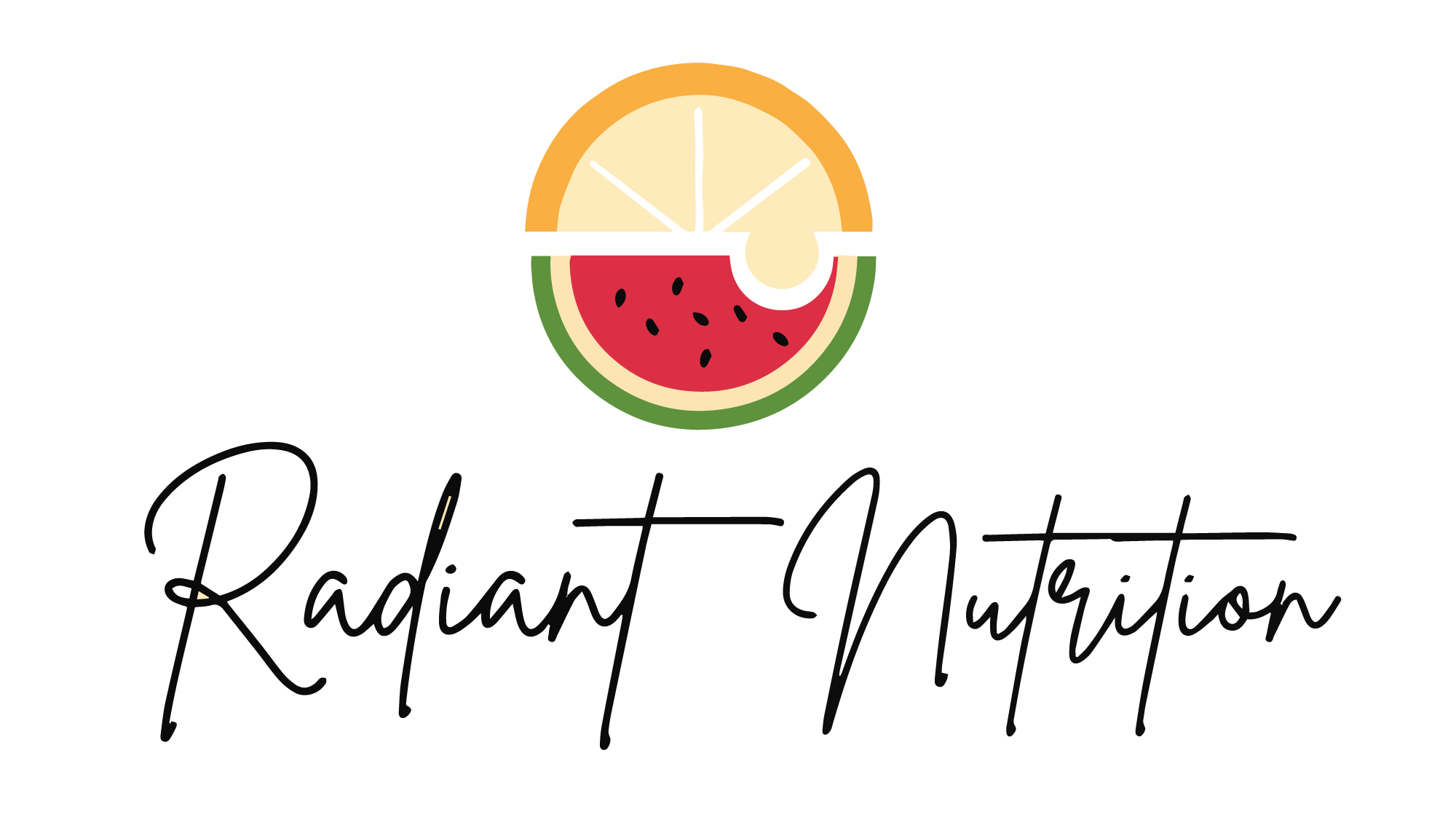Gut Microbiome 101: What You Need to Know
As humans, we have microbiomes throughout our bodies. A microbiome is basically a collection of microorganisms that work together in a specific area to help your body function on a molecular level. You have a skin microbiome, gut microbiome, mouth microbiome, etc. The gut microbiome has been a very exciting field of research for dietitians as we discover how important it is to maintain gut health. For the average person, however, the science may not be that interesting and can honestly be rather confusing. That’s why we’ve written this article to help you understand the basics and how to apply them to your life!
What is the gut microbiome?
As mentioned above, your gut microbiome is a collection of microorganisms within the human GI tract that have formed an intricate and mutually beneficial relationship within your body. This relationship has evolved over thousands of years and has been found to strengthen gut integrity, increase energy, protect against pathogens, and regulate your immune system. Unfortunately, sometimes there is an imbalance in the gut flora known as dysbiosis, which can contribute to a large number of intestinal and extra-intestinal (outside the intestines) diseases.
Does what you eat affect your microbiome?
By 2.5 years of age, your gut microbiota reaches a similar state of an adult! This means it resembles the diversity and functional capabilities of an adult’s microbiome. This does not mean, however, that by adulthood your microbiome is unchanged or unchangeable. Your microbiome can be shaped by many things. Diet, for example, has been found to have a significant effect on your gut microbiota in addition to geographical location, genetics, metabolism, surgery, smoking, depression/anxiety, living arrangements, and even antibiotics (this is why you are told to eat yogurt when taking antibiotics)! While an approach for the long-term alteration of our “ecological homeostasis” has yet to be published, we know that certain foods are beneficial for shaping a stable microbial community (even if the composition of the microbiota does not change).
Carbohydrates, fats, and proteins that are undigested after going through the GI tract serve as microbiota-accessible nutrients. Based on what you are eating, different bacteria will grow in your gut microbiome leading to a unique structure, composition, and function of your GI tract. This further impacts your gut lining and immune system, with dysbiosis leading to IBS, IBD, leaky gut syndrome, etc.
What can you eat to improve your microbiome?
Studies have shown that a diet rich in fermented foods leads to increased microbial diversity and a decrease in the numerous markers of inflammation. Fermented foods include brined pickles, sauerkraut, kimchi, and yogurt. Additionally, fiber is the key nutrient for maintaining the diversity of the gut microbiota. Micro-biome promoting fibers whole grains (i.e. oatmeal), beans, cooked and cooled rice, pasta and potatoes. In addition, phenols, found in fruits and vegetables and healthy fats such as olives, avocados, and nuts can help balance your gut microbiome
If you are experiencing gut symptoms such as nausea, bloating, gas, constipation or diarrhea we can help you find the solutions to your specific concerns. For more help with your nutrition, contact us! We’ve got your back (and your gut)!
Written by Trinny Duncan, Student Intern and Peggy Pratt, PhD, RDN, LDN, CEDS-C
References:
Adding key foods to a diet will help restore gut health. (2022, April 4). UW Medicine | Newsroom. https://newsroom.uw.edu/blog/adding-key-foods-diet-will-help-restore-gut-health
David, L. A., Maurice, C. F., Carmody, R. N., Gootenberg, D. B., Button, J. E., Wolfe, B. E., Ling, A. V., Devlin, A. S., Varma, Y., Fischbach, M. A., Biddinger, S. B., Dutton, R. J., & Turnbaugh, P. J. (2013). Diet rapidly and reproducibly alters the human gut microbiome. Nature, 505(7484), 559–563. https://doi.org/10.1038/nature12820
Leeming, E. R., Johnson, A. J., Spector, T. D., & Le Roy, C. I. (2019). Effect of Diet on the Gut Microbiota: Rethinking Intervention Duration. Nutrients, 11(12), 2862. https://doi.org/10.3390/nu11122862
Sevag Hamamah, Amin, A., Abdul Latif Al-Kassir, Chuang, J., & Mihai Covasa. (2023). Dietary Fat Modulation of Gut Microbiota and Impact on Regulatory Pathways Controlling Food Intake. Nutrients, 15(15), 3365–3365. https://doi.org/10.3390/nu15153365
Zhang, P. (2022). Influence of Foods and Nutrition on the Gut Microbiome and Implications for Intestinal Health. International Journal of Molecular Sciences, 23(17), 9588. https://doi.org/10.3390/ijms23179588

